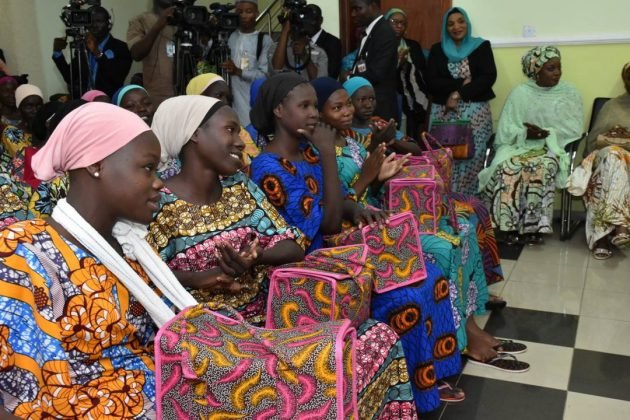As the world commemorates International Women’s Day with the theme ‘Visions for the Future of Girls’, the Nigerian government must do everything in its power to protect the future of girls from the negative impacts that threaten to undermine them.
Observed on October 11th every year since 2012, Girls’ Day celebrates how girls are “disproportionately affected by global crises such as climate, conflict and poverty” and ” It aims to raise awareness about how hard-won human rights and gender gains are being pushed aside. equality. ”
In Nigeria and many other countries, many girls continue to be denied their rights, have their options limited, and have their futures restricted. They suffer from lack of access to education, nutrition, legal rights, health care and protection from violence.
Given the myriad challenges facing Nigeria, this is not the best time for girls. Girls across the country face existential threats to their well-being due to threats such as early marriage, kidnapping, expulsion from school, displacement due to rebellion, poverty, sexual abuse, and forced labor.
Abuse in all its forms is a daily reality for many Nigerian children, and only a minority receive help. UNICEF states that “6 in 10 children have experienced some form of violence, with 1 in 4 girls and 10 per cent of boys being victims of sexual violence.” Fewer than 5 in 100 children who reported violence received any kind of support. ”
Much of the cause of violence against children, especially girls, in this country is rooted in social norms centered around the use of violent discipline, violence against women, and community beliefs about witchcraft.
Various international organizations have raised alarm over the increasing number of female genital mutilation cases among girls aged 0 to 14 in Nigeria, with an estimated 19.9 million survivors. Trapped in a complex web of trauma and neglect, many girls flee their homes and fall prey to child traffickers and sexual abusers.
Tragically, the interplay of insecurity and poverty is denying many girls across the country the basic tools they need to secure their future in a changing world: education. It has been.
According to recent estimates, there are currently 18.3 million out-of-school children in Nigeria. “Unfortunately, this leaves Nigeria with the challenge of having the highest number of out-of-school children in the world,” said Tushar Lane, UNICEF Field Director in Bauchi. Mr Lane was concerned about the decline, further highlighting that only 63 per cent of primary school children attend school regularly.
Alarmingly, UNICEF’s 2022 report predicts that the number of child brides in Nigeria will decline by 6.0 percent by 2030, while based on rapid population growth, the number of child brides will estimates that the number will increase by more than 1 million by 2030. And it will double by 2050.
Federal and state governments should ensure that education is compulsory and that child rights laws are fully adopted and enforced in all states.
Nigeria’s law enforcement agencies and legal system should be thoroughly reformed to ensure that those who exploit and abuse girls are prosecuted to the fullest extent of the law.
Institutions, civil society organizations, faith-based organizations, families and individuals must ensure that girls are protected from abusers and receive comprehensive support to achieve a sustainable future and be raised in a healthy environment. It is necessary to cooperate with

